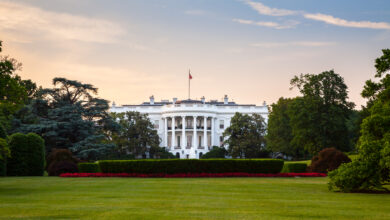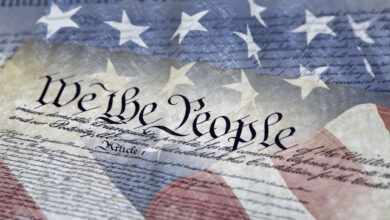The President Can and Should Be Indicted and Prosecuted

It is time to re-examine the idea that a sitting president cannot be indicted. Following that re-examination, it will also be time to reject the idea.
First, we need to remind the majority of American people that this is not a law nor is it a constitutional requirement. Rather the idea is a Department of Justice guideline. However, it is one that runs directly contrary to the idea that no man or woman is above the law-including the president of the United States. This is idea is a founding principle of this Republic, born of the abuses of a king.
The argument that presidents should not be indicted is based on a couple of core theories. One is that such indictments would distract presidents from their duties. This is a flawed notion on several levels.
First, the concept that the president is too busy to face the due process of our system of justice would seem to support the argument that he or she is above the law. If that is not the case then it implies an impossible standard—that somewhere out there are people who are just too busy to be bothered by the law. Just how busy is that? Is a busy president more deserving of such an exemption than a busy general or governor or banker?
Next, the idea that such cases would be brought without merit is one that doesn\’t exist elsewhere in our consideration of the law. Somehow, this notion gives the benefit of the doubt to the president over those bringing the charges which would implicitly suggest a superiority of mission for the president above that of the courts.
That would seem to run contrary to the ideas underpinning core decisions of the Supreme Court like Marbury v. Madison. If an indictment is brought following the appropriate steps of due process, why should it not be honored? Why should it wait?
Further, of course, we are presented with the very real case that a president could commit crimes in order to become president and then be protected from prosecution by holding the office he achieved through fraud, deception or other crimes.
Those who argue against indictment of presidents say the Constitution says the responsibility to enforce such laws rests with the Congress via the route of impeachment. First, while the Constitution creates that mechanism for dealing with \”Treason, Bribery and other high Crimes and Misdemeanors,\” it is silent on whether that is the only avenue available for dealing with other issues. It also should be noted while it grants members of Congress certain immunities it grants none to the president.
Further, since John Marshall, it has been believed by the Supreme Court that presidents are subject to subpoena power…which raises the question, \”Why that and not a more serious form of legal process like an indictment?\”
Scholars are divided on the issue. And while some memoranda on the point are the president should not be indicted, the ones I am familiar with were created by scholars with at least some interest in protecting or serving the president.
Which brings us to the impeachment process. While it was assumed Congress would serve as a check on the president through this process, it was done so by framers who did not know of our political party system and its abuses.
It is very clear that the GOP Senate is so political that it has repeatedly ignored its oversight responsibilities under the Constitution. What are we to do as a nation if pols take over one or the other house of our legislature and enable commissions of crimes by a president?
Because that is exactly what has happened. The GOP has essentially demonstrated that it will not uphold its constitutional responsibilities. So, we must have a check against such willful nonfeasance. The courts are the only available answer short of new elections.
Right now, we face the reality of a president who used fraud to enter office and who has violated his oath to preserve, protect and defend the constitution on multiple levels–from ignoring the emoluments clause to serving foreign enemies at odds with American interests.
He is defiling the White House, using it not as the seat of executive power in our government but as a hideout for him and his gang of liars, thieves and worse. Absent a true test of the idea of indicting a sitting president he will remain there, the worst example in our history of an idea that was anathema to our founders. He will be above the law and beyond its reach. He will continue to profit from his crimes and put our democracy and our security at risk. He will remain a threat.
If you enjoyed this piece, please consider supporting us by becoming a member. Membership is $20 off through the weekend. And Deep State Radio is donating 10% of all membership and store sales proceeds to The Malala Fund and The International Rescue Committee.
We must not let that happen simply because this idea is untested in the courts and to date has been dominated by the theoretical arguments of interested parties. We deserve better. Our system deserves better.
And if in the end the courts reject the idea that a sitting president can be indicted then it will shift the responsibility on the Congress and on voters as they will know the risks we face.
There is again a cancer on the presidency. It is the president himself, but it puts us in dire jeopardy if we do not have a means to excise it that is above and beyond our broken, shameful politics. We should explore this avenue even as we pursue every other.
Because if the facts of our time demonstrate one thing, it is the primary test America faces right now is whether it has the wherewithal to defend itself from the profound corruption and serial abuses of its president. That\’s why this is an issue for every one of us.
And that is why it one we must address with all the urgency we can muster.
You may also like:
Trump Must Be Brought to Justice by David Rothkopf




